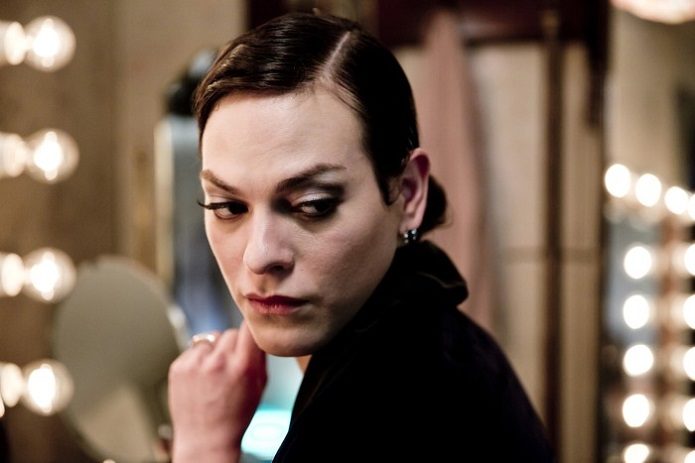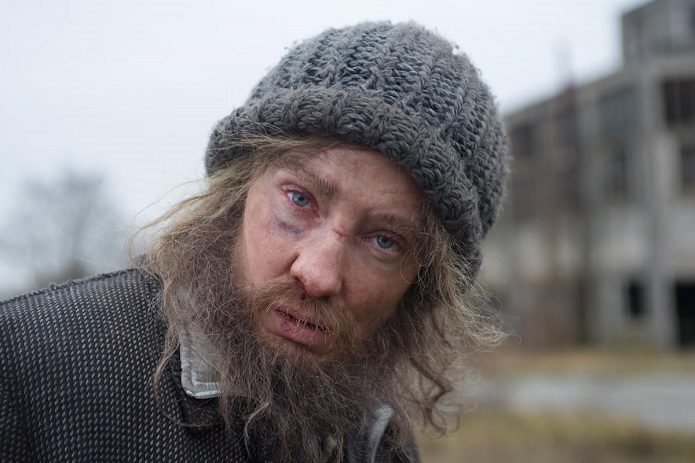2017
The year in German cinema

In the realm of German filmmaking, 2017 began as 2016 ended: with a loving father donning a wig and a set of false teeth, adopting a fake name and trying to spend time with his overworked daughter. Such is the impact of ‘Toni Erdmann’, and not just in its length, that the applauded film threatened to cast a shadow over the rest of the country’s cinematic output for the year. And yet, while Maren Ade’s lovingly, comically insightful effort remains in a field of its own, that wasn’t 2017’s only highlight.
If a twelve-month period can provide a snapshot of a nation’s filmmaking prowess, then German cinema continues to champion a diverse range of movies. After the laugh-inducing heights of Toni Erdmann, it was emotional thriller In the Fade that next focused the world’s attention on the country. Further, everything from high-energy coming-of-age films to pensive vacation dramas did the rounds of festivals, while a homegrown comedy sequel came second at the German box office.
Toni Erdmann’s continued success
Still, it’s impossible to reflect upon the year just passed without acknowledging and appreciating Toni Erdmann’s success. The film entered 2017 on the Academy Award shortlist in the best foreign-language film category, and with a Golden Globe nomination in the same field. While it ultimately wouldn’t earn a trophy at either, or turn its BAFTA nod into a statue, the unconventional ode to eccentricity continued to feature prominently during awards season. At home, it swept the German Film Awards, receiving gongs for outstanding feature film, its leading performances by Peter Simonischek and Sandra Hüller, Maren Ade’s screenplay and direction, and Heike Parplies’s editing. Toni Erdmann
| Toni Erdmann © Komplizen Film, coop99, Missing Link Films 2016
Toni Erdmann
| Toni Erdmann © Komplizen Film, coop99, Missing Link Films 2016
In the Fade’s growing recognition
When Cannes came around in May, it was another German feature that had audiences talking — and awards coming its way as well. Directed by Fatih Akin and starring Diane Kruger in her first German film role, In the Fade took a timely and topical subject and made it personal, charting a woman’s reaction when a terrorist attack tears apart her family. On the Croisette, Kruger received the festival’s best actress prize, becoming the first German actress to emerge victorious in the field since Barbara Sukowa in 1986’s Rosa Luxembourg. As 2018 begins, the film won the Golden Globe for foreign-language film and sits on the Oscar shortlist.
Berlinale shines brightly
While two particular German films remain prominent around the globe, the country’s major film festival once again brought the filmmaking world to Berlin for the 67th annual Berlinale. Indeed, while the Berlin International Film Festival featured a sizeable homegrown component — including eight features in the competition either made in Germany or proving German co-productions — the Golden Bear went to Hungary’s On Body and Soul. Among the local standouts, Beuys: Art as a Weapon delved into an icon’s life and impact, while co-production A Fantastic Woman was a deserving recipient of the Teddy award. Throughout the rest of the program, Revolution of Sound explored the story of Tangerine Dream’s career, The Young Karl Marx examined a continually relevant historical figure, and Self-Criticism of a Bourgeois Dog further pondered the making of and adherence to an ideology.  A Fantastic Woman
| © A Fantastic Woman
A Fantastic Woman
| © A Fantastic Woman
Showcasing German filmmaking to the world
Beyond the Berlinale, German cinema was a constant presence on the festival circuit. Premiering at Sundance, Axolotl Overkill saw Helene Hegemann bring her own semi-autobiographical coming-of-age novel to the screen with assurance, while Karlovy Vary’s The Cakemaker approached the vagaries of romance with delicacy and sensitivity. Following German construction workers in Bulgaria, Western provided an apt but by no means straightforward tribute to its genre namesake; steeped in another realm, Three Peaks unpacked the domestic disharmony that can blister when a holiday goes awry. Elsewhere, The Garden plumbed family problems in a lighter but still poignant manner, but Margarethe von Trotta’s Forget About Nick sadly relied upon easy clichés in its tale of two wives feuding over the same ex-husband.Exploring the line between film and art
In one of the recurrent themes in German films throughout 2017, contemplating the line between film and art — or using the latter to explore the former — kept fascinating filmmakers. Three features exemplified this in their own ways. Segueing from a gallery installation to a film, the Cate Blanchett-starring Manifesto stepped through a series of art movements, with video artist Julian Rosefeldt choosing to favour concepts over traditional storytelling. In Beuys: Art as a Weapon, the documentary format’s fondness for talking heads is thrust to the fore as the film’s subject both provides much of its content and questions the conceit in his artistic output. And, in something completely different, Austerlitz engages in the simple act of watching, asking what the viewer sees while tourists walk through historically significant sites. Retracing the path of the past in museums and monuments isn’t unlike gazing at art in a gallery, which the Dachau and Sachsenhausen concentration camp-set observational documentary makes plain as it focuses not on the locations and their significance, but on the reactions of its visitors. Manifesto
| Manifesto © Manifesto
Manifesto
| Manifesto © Manifesto